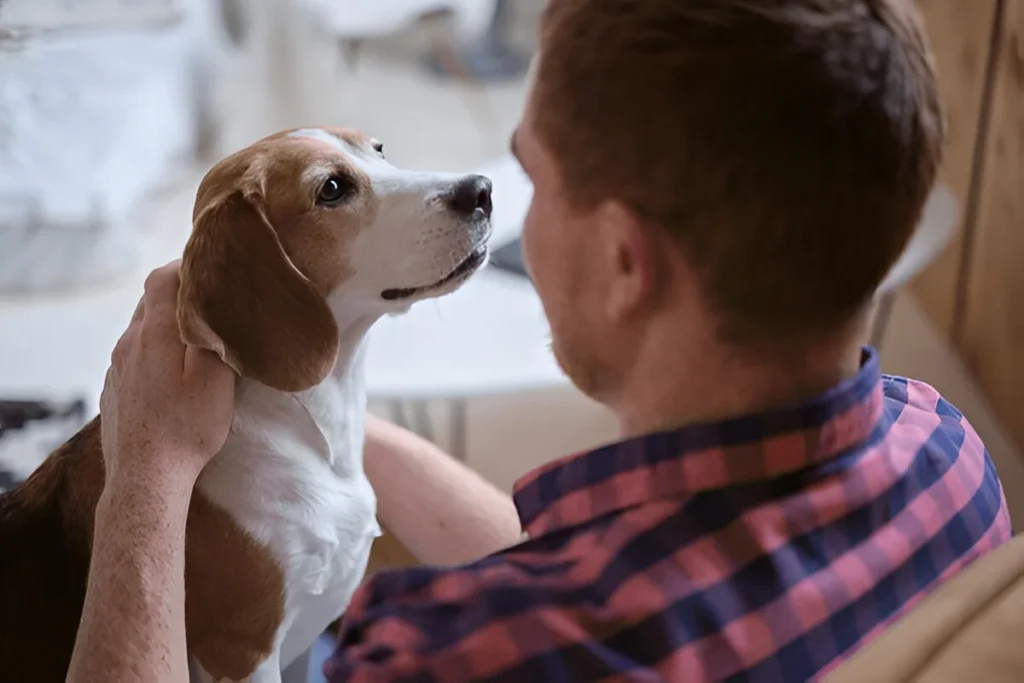-
Kutchina service center, Kolkata - 700010
Kutchina service center, Kolkata - 700010

Human Pet Bond is more than affection—it’s a powerful emotional connection. Discover the science and benefits with insights from a reputed Pet Clinic.
Imagine coming home after a long day and being greeted with pure excitement—no judgment, no questions—just unconditional love. That’s the magic of the human-pet bond.
This unique connection has existed for thousands of years, but today, more people than ever are discovering how emotionally transformative pets can be. From emotional support to stress relief and even physical health improvements, our relationships with pets go far beyond companionship.
But what actually makes this bond so emotionally strong? Let’s explore the biological, psychological, and social factors behind this incredible connection.

While emotions play a huge role, there’s hard science that explains our deep attachment to pets. Researchers have found that interactions with animals can significantly influence the release of certain chemicals in the human brain.
Key biological reasons include:
These physiological reactions aren’t one-sided. Studies show pets, especially dogs and cats, also experience hormonal changes when bonding with humans.
What begins with hormones quickly turns into something more lasting—emotional resilience and mental well-being. The human-pet bond can be therapeutic and even life-changing.
Here are some emotional benefits people report:
Beyond chemistry and emotions, our pets also serve important roles in our social lives and personal development.
Here’s how pets shape our psychology and lifestyle:
Daily routines like feeding, walking, grooming, or playing are not just chores—they’re bonding rituals. They create mutual trust and rhythm, turning simple actions into moments of connection.
Shared routines help in the following ways:
Over time, these interactions form a language of love between humans and pets—one that doesn’t need words.
Pets are highly intuitive. They often reflect their owner’s moods, respond to emotional changes, and offer comfort during challenging times.
For example:
This emotional synchronization reinforces the human pet bond. It becomes a two-way relationship of care and emotional response.
Mental wellness is one of the most talked-about health concerns today—and pets are increasingly recognized as emotional allies. Whether it’s therapy animals in hospitals or emotional support animals for anxiety and PTSD, pets are proving their worth as companions for healing.
In terms of mental wellness, pets:
Professionals across psychology, psychiatry, and behavioral sciences are now recommending pet interaction as part of holistic wellness plans.
Just like in human relationships, early experiences matter. The first few weeks and months of pet ownership are foundational. Positive reinforcement, consistent care, and quality time lay the groundwork for a secure and enduring connection.
Simple steps that strengthen the bond from the start:
A healthy pet is a happy pet—and that deepens your emotional connection. While this article is educational, it’s worth mentioning that ongoing veterinary support plays a key role in ensuring both emotional and physical well-being.
That’s where professional care from places like the Best Pet Clinic in Kolkata supports your journey. They not only treat medical issues but guide you through behavioral challenges, nutrition, grooming, and emotional health.
This holistic support ensures that your bond continues to flourish—day by day.

Q1: Can pets really understand human emotions?
Yes, many pets, especially dogs and cats, are highly perceptive. They pick up on tone, body language, and even hormone shifts to respond to your emotional state.
Q2: What’s the best way to bond with a new pet?
Consistency, positive reinforcement, and time. Avoid overwhelming your pet—let them approach you at their own pace.
Q3: Do pets get emotionally attached to humans?
Absolutely. Pets often develop separation anxiety, become protective, and seek closeness—all signs of deep attachment.
Q4: Are certain pets better for emotional bonding?
Dogs and cats tend to be the most emotionally expressive, but birds, rabbits, and even reptiles can bond closely with attentive owners.
Q5: Can the human pet bond help with mental health conditions?
Yes, studies have shown pets can alleviate symptoms of anxiety, depression, PTSD, and loneliness by offering unconditional companionship and routine.
The human pet bond isn’t just about love—it’s about healing, understanding, and mutual growth. Pets become more than animals; they become family, emotional supporters, even life coaches in their own way.
Understanding this bond allows us to become better caregivers, and in turn, better people. Whether it’s a purring cat on your lap during a rainy evening or a tail-wagging dog nudging you outside for a walk, those small moments remind us of the power of connection.
And that bond—silent, strong, and deeply emotional—is one of the greatest relationships you’ll ever experience.